The Maine Spirit
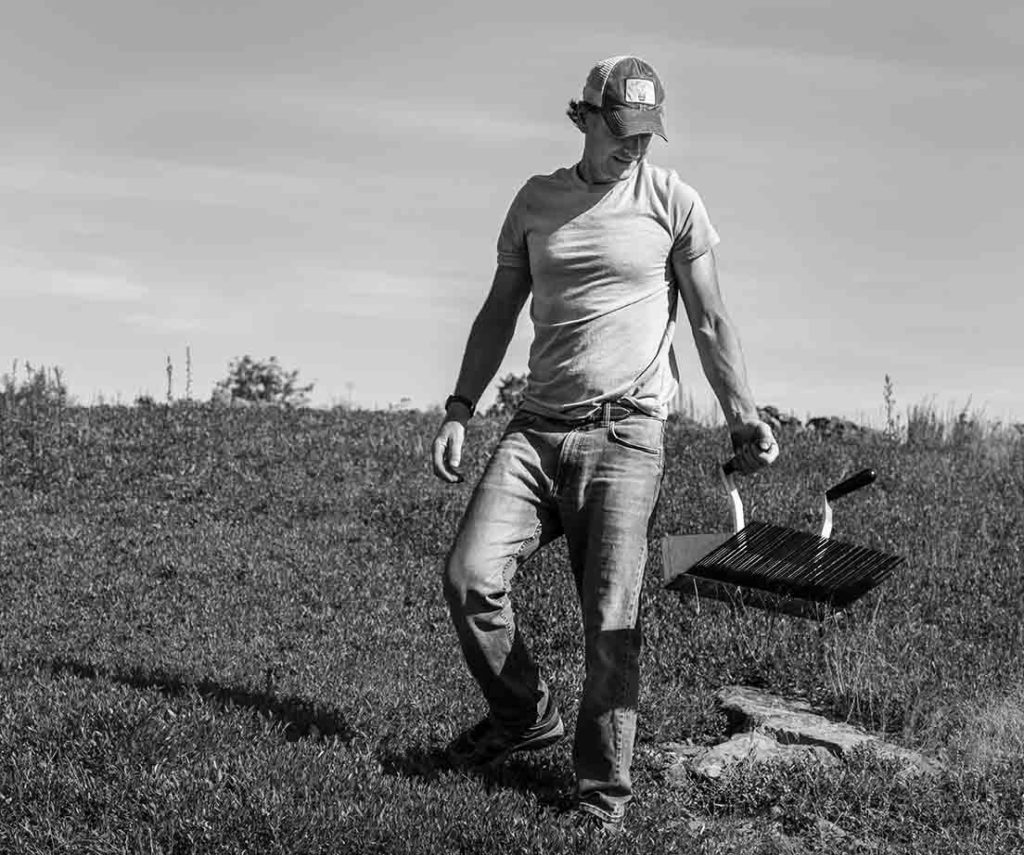
The Maine Spirit
Jeremy Howard’s family had been harvesting wild blueberries for generations before a price crash motivated a uniquely Maine distillery
by Paul Koenig
Photography by Susan Metzger
Issue: September 2020
As Jeremy Howard walks across the same wild blueberry fields he raked as a boy, he feels history beneath his feet. He sees it in the piles of rocks his grandfather had moved to make harvesting at his family’s blueberry farm easier and in the filled-in cellars of structures from generations ago. The wild blueberry plants themselves emerged more than 10,000 years ago, after the glaciers receded from Maine’s landscape. “It’s a very powerful feeling, and I can sense it when I’m up here,” Howard says. “That is the draw that keeps me going.”
At Brodis Blueberries in Hope, Howard and his family harvest about 200,000 pounds of wild blueberries during a three-week season that begins around the start of August. His grandmother, Gwen Brodis, still owns the farm, and Howard now manages the retail and processing operation.
Like at other wild blueberry farms in Maine, the vast majority of the farm’s harvest is sold to processors to be frozen. Maine is the world’s largest producer of wild blueberries, which are smaller and more flavorful than the cultivated varieties more often found in grocery stores. In the 1950s Maine wild blueberries dominated the blueberry market, but now cultivated blueberries make up a larger share. “On the shelf people think a blueberry is a blueberry so they go with the big ones,” Howard says, “but it’s night and day.”
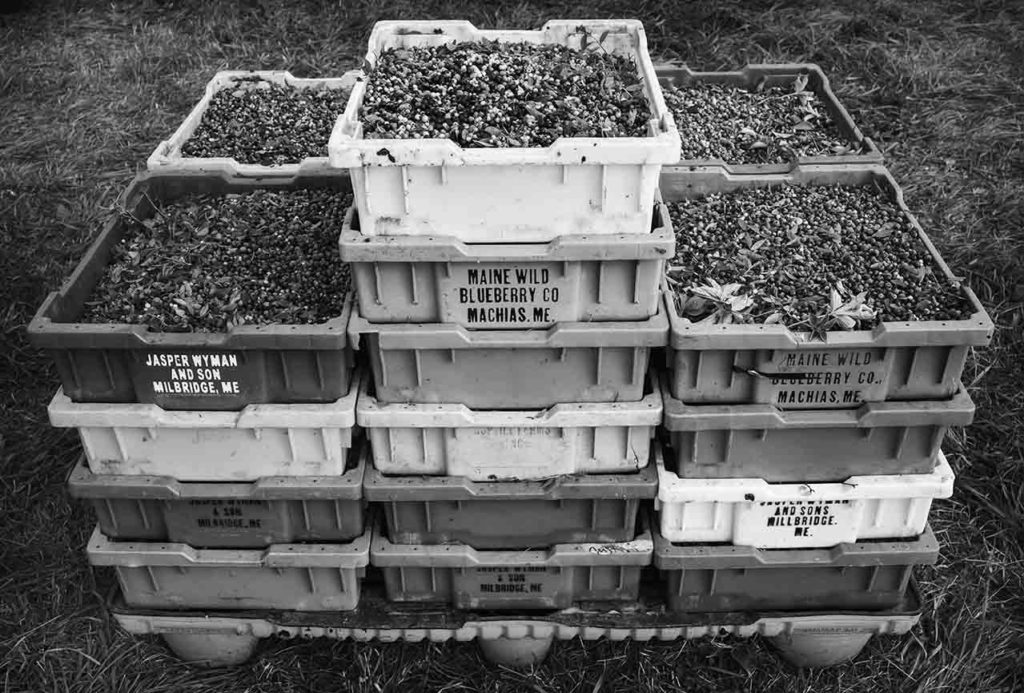
The totes protect the fragile berries as they are transported up north for processing.
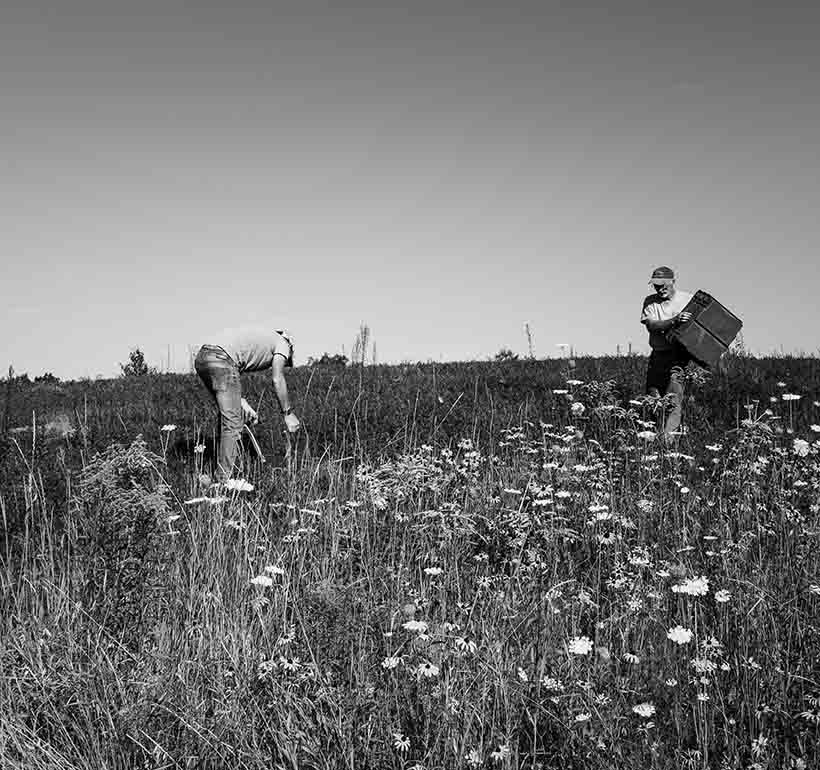
Jeremy Howard and his father, Ron, are hand-raking the berries that will be sold fresh at the Brodis Blueberry farm stand. 
Jeremy grew up hand-raking blueberries at his grandparent’s farm.
Those growing numbers of cultivated blueberries flooding the market mean that processors now pay wild blueberry farmers here less than it costs them to harvest the berries. After accounting for all of the operating costs, from labor to fertilizer to bringing in bees to pollinate the plants, wild blueberry farms typically need to receive around 50 cents per pound to break even. The market hit a low point in 2017, when wild blueberry farmers received 25 cents per pound, leading some farmers to just leave their blues on the vines. To make up the price difference, Brodis Blueberries has been trying to shift more of their harvest to value-added products like jam or selling fresh berries to food and drink producers. “It would be like losing Maine lobster,” Howard says. “We have to keep it going somehow because it’s so unique to our area. That’s on us to figure it out.”
Back in 2016, amidst a precipitous drop in price, Howard turned to alcohol—specifically, distilling blueberries into alcohol. Over a beer at the Drouthy Bear in Camden, Howard and the now-closed bar’s owner, Andrew Stewart, were discussing the pricing challenges facing blueberry farmers, and Stewart joked that they should open a distillery. The next morning, they were texting each other about the idea, and over the next year they developed it into a plan for Blue Barren Distillery.

Ron manages the wild blueberry fields at the family farm. 
A mechanical harvester scoops up berries.
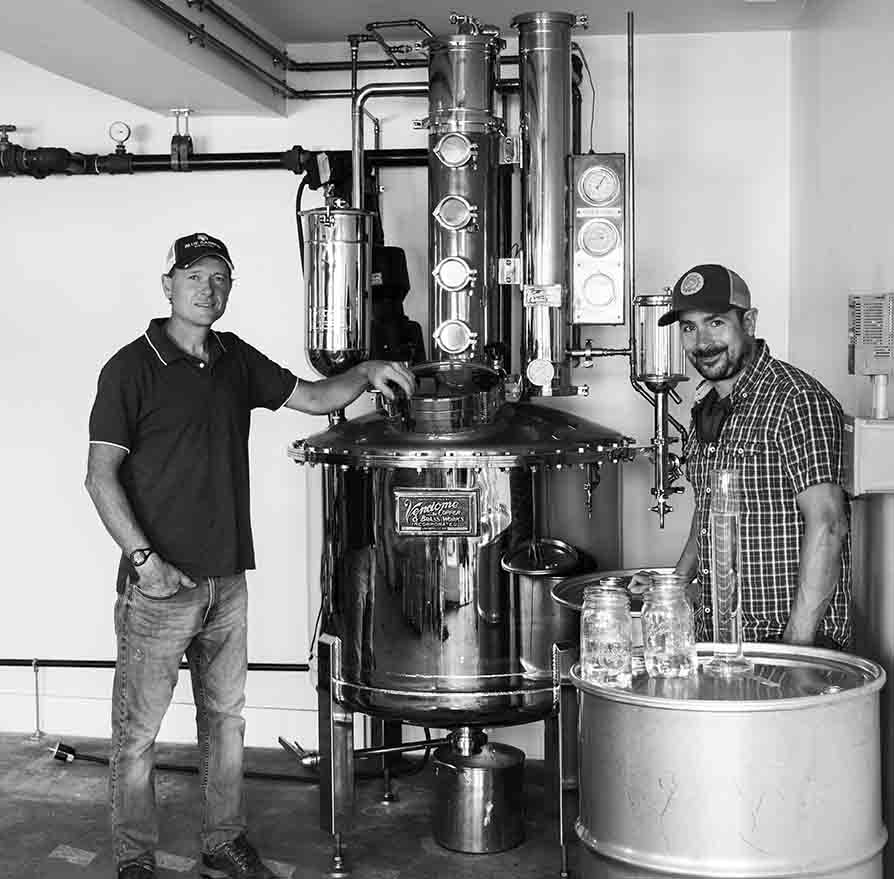
Jeremy and the cofounder of Blue Barren Distilling, Andrew Stewart. 
Jeremy loads a tote of blueberries into a crusher, which will drop juice into a vat below.
In their first year they fermented 32,000 pounds of blueberries into wine and then distilled it into a clear blueberry-flavored brandy called eau-de-vie, French for “water of life.” Howard describes the spirit’s taste as the essence of the blueberry: “There are fruity notes. It smells like blueberry when you bring it up to your nose, but it doesn’t hit you hard. It’s smooth. We haven’t found something to compare it to.”
Howard and Stewart have since opened a tasting room and cocktail bar on Camden’s waterfront and expanded their offerings with rum and gin, which is made with juniper and other botanicals from area farms. Because it’s not a common spirit—Howard thinks they’re the only ones making eau-de-vie with wild blueberries—they use the tasting room to educate visitors. Every year they put some of the eau-de-vie in oak barrels to age for six to ten years. Last year they began blending the clear spirit with blueberry juice and plan to age that for three to five years. Although they’re still making spirits, they won’t be opening the tasting room and bar this year because of the coronavirus.
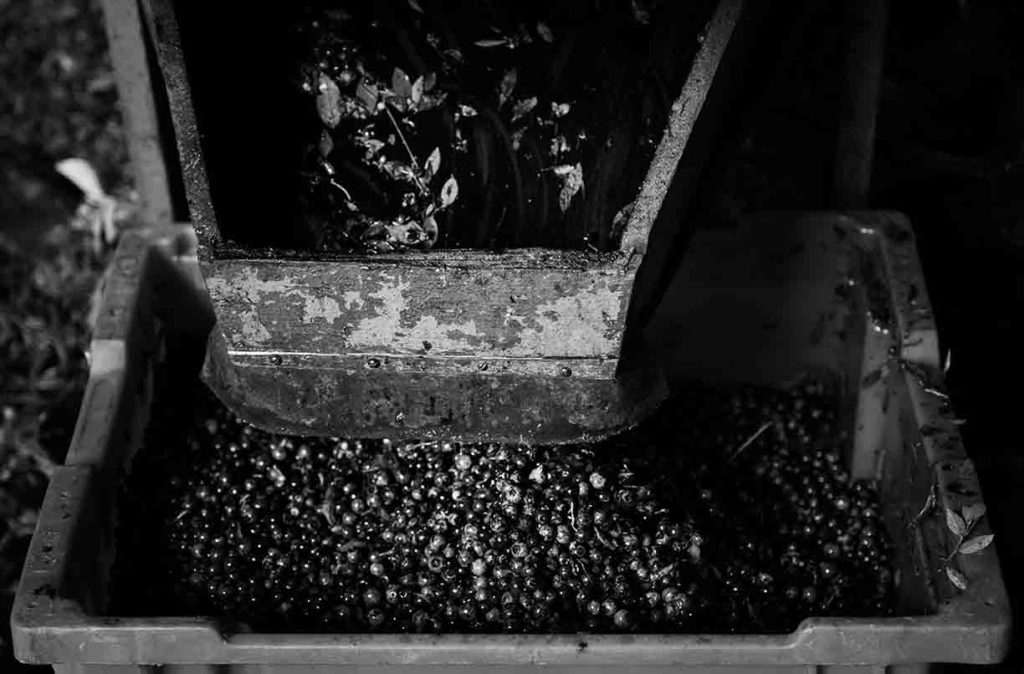
After the hand-raked berries are collected, they go into this old winnowing machine. 
Once the eau-de-vie is distilled, it’s placed in glass carboys to mellow out.
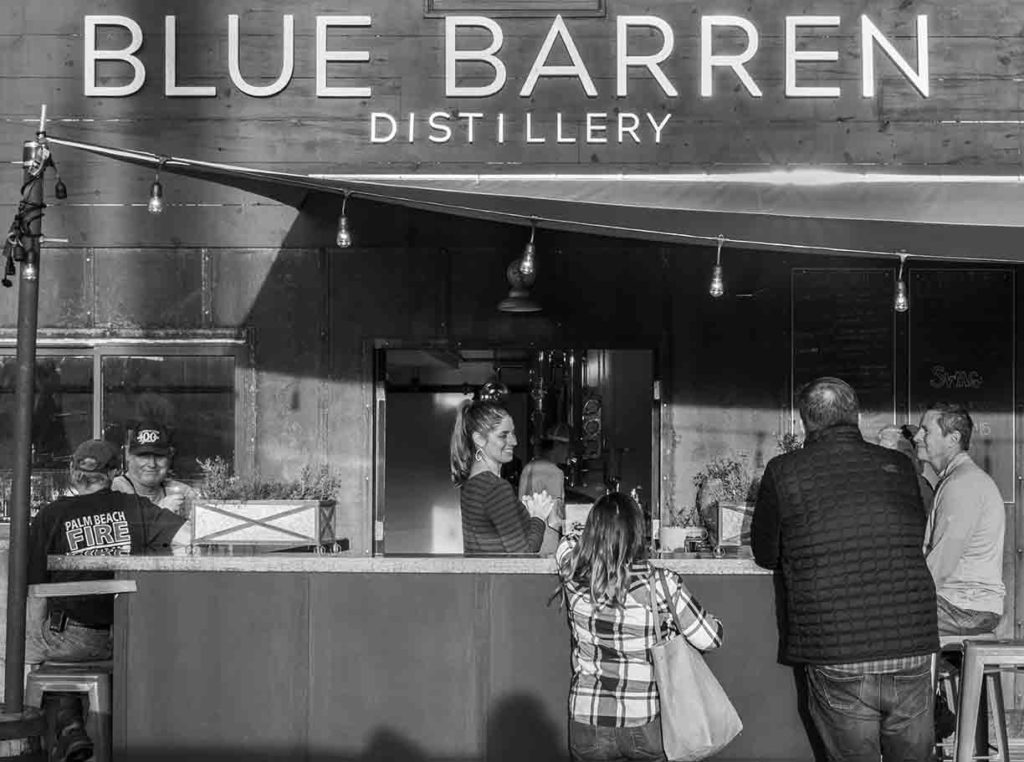
At the tasting room and bar on Camden’s waterfront, customers are able to try the distillery’s spirits, alone and in cocktails. However, the tasting room will not be opening this year due to the coronavirus.
While the berries used to make the wild spirit are a small portion of the farm’s overall harvest, Howard hopes the popularity of blueberry eau-de-vie grows enough for it to become another option for farmers across Maine to sell their berries. His three sons—the eldest is 13—would be eighth-generation blueberry farmers. Perhaps, by the time they’re Howard’s age, more blueberries from their family’s farm will be used to make spirits than are sent to processing plants. “The family aspect of the farm is the reason we’re doing it,” Howard says. “There’s not a lot of money in blueberries, so you have to be very creative to force the market in your favor.”

